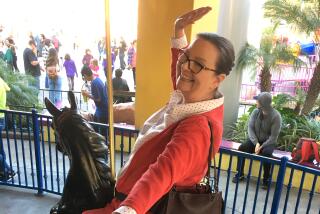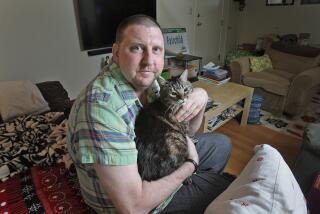The Alternatives to a Painful Death
- Share via
I would like to respond to the articles on Jack Kevorkian and the AIDS patient seeking to gain the right to assisted suicide in California (“ ‘Dr. Death’ Plans a New Kind of Clinic” and “Fighting for a Dignified Death,” Jan. 17).
As a person who has been fighting cancer for the past two years, I fully understand the need to seek an alternative to what most patients fear most--the loss of quality of life and a painful death.
I have been in the hospital five times, twice for two-part bone marrow transplants at the City of Hope. I was told that my job of seven years no longer existed after I had to take off four months for diagnosis, chemotherapy and surgery. I had six weeks of radiation and four trials on chemotherapy.
Still the cancer marches on, only slowed down at best. Fortunately, I feel well now, but what will happen when the cancer cannot be stopped?
To find my own answer, I responded to a request for volunteers at a local hospice organization. I feel that hospice is an alternative that is well known, and it brings me peace of mind to know that it will be there when I need it. Hospice provides comfort and care to the terminally ill patient and his or her family, when a cure is no longer possible.
SUSAN JEFFERS
San Dimas
*
Re “Fighting for a Dignified Death”: John Doe’s story includes a little known fact, that people with AIDS are at risk for serious vision loss, even blindness, due to CMV Retinitis.
I manage what I believe to be the most comprehensive HIV and Vision Loss Program in the country, devoted to meeting the needs of people with vision loss as a result of AIDS. This means that our low-vision optometrist may have to make house calls if the person is too ill to come to us.
We also provide home safety and lighting evaluations, mark appliances, provide mobility training and psychological counseling around issues dealing with vision loss. As a result, some of our clients have been able to continue their activities, despite vision loss or blindness.
All of this is meant to help the person maintain the quality of life, which your John Doe held as a criterion for his life. Please advise all of your readers who are HIV-positive to be aggressive about their vision care. Early intervention is critical in preventing blindness.
VICKI PLOWMAN, Manager
HIV and Vision Loss Program
Center for the Partially Sighted
Santa Monica


